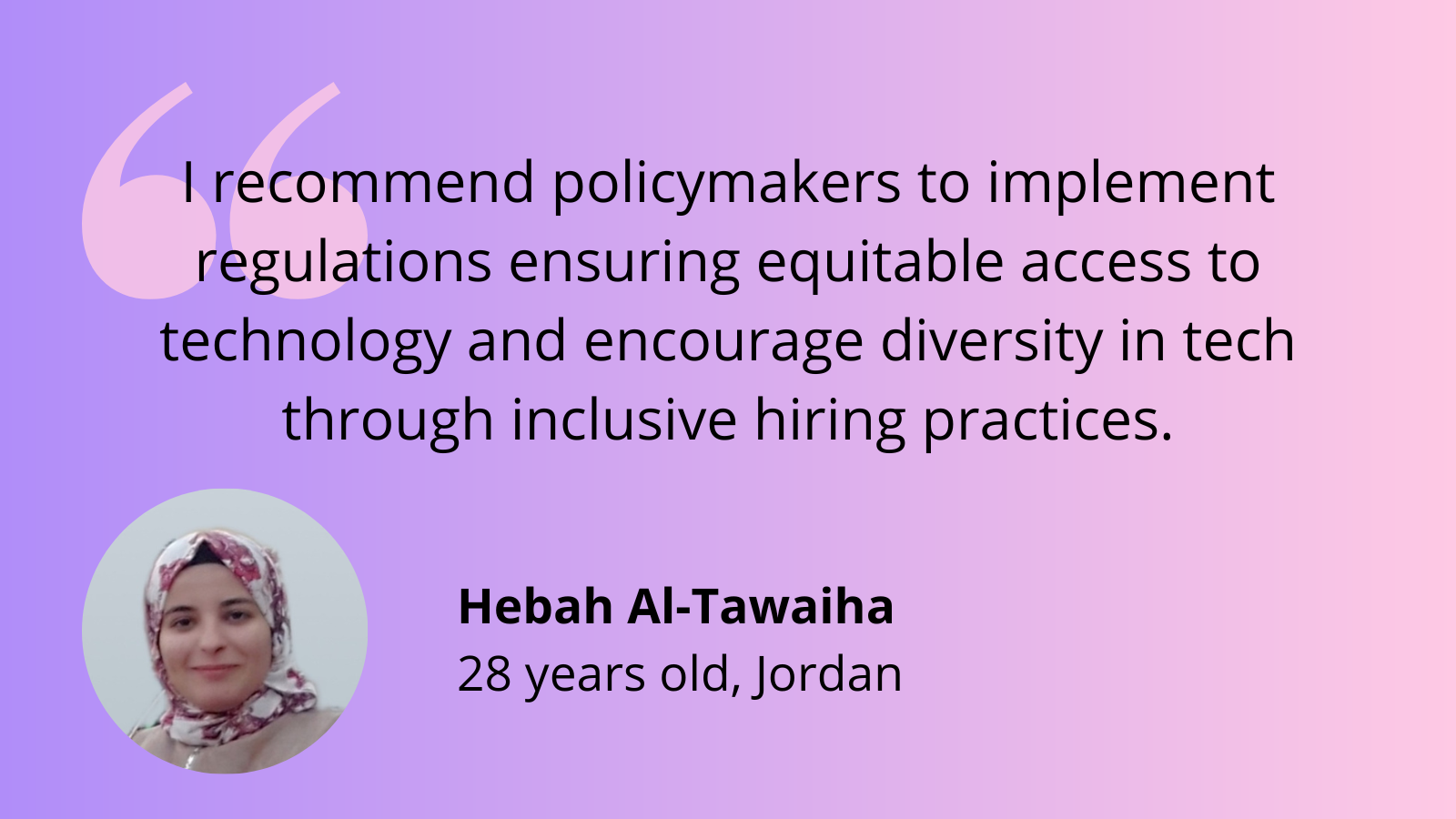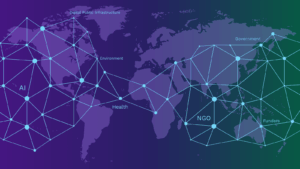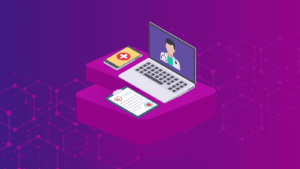In the context of the #Youth4OurDataFuture project, the Datasphere Initiative spoke to a diverse group of young leaders about the role of young people in shaping how data and digital technologies are governed. Through a series of interviews, 19 young people from all over the world shared their insights on what an equitable data future looks like.
All participants were asked about how they would like to get involved in data governance discussions, make an impact, and how their ideas could reach centers of power and decision-makers. In addition to answering these questions, each participant selected two topics to discuss in depth.
Hebah Al-Tawaiha, Jordan, 28 years old, shared ideas to reach decision-makers, foster collaboration, transparency continuous improvement in data governance, and her experience on education and the Sustainable Development Goals (SDGs).
Read more about the campaign and other contributions here.
How would you like to get involved in data governance discussions and make an impact? How could your ideas reach centers of power and decision-makers?
I am eager to actively engage in data governance discussions by contributing insights derived from my expertise in data analytics. I propose initiating regular forums or workshops where cross-functional teams can collaborate on best practices and challenges. To ensure that my ideas reach decision-makers, I would leverage clear and concise communication through presentations and reports. Additionally, establishing a dedicated channel for sharing insights and recommendations, accessible to leadership, would facilitate a direct line of communication. I believe in fostering a culture of transparency and continuous improvement, and I am committed to driving data governance initiatives that align with organizational goals.
What are your recommendations for policy-makers in creating a fair and inclusive digital future?
My recommendations for policy-makers center on fostering a fair and inclusive digital future. Prioritize digital literacy programs to bridge the knowledge gap. Implement regulations ensuring equitable access to technology. Encourage diversity in tech through inclusive hiring practices. Establish robust data privacy laws to protect users. Foster collaboration between governments, industries, and communities to collectively shape an inclusive digital landscape. By integrating these measures, policy-makers can lay the foundation for a digital future that benefits all, promoting accessibility, equity, and innovation.
Education:
What kind of data or tech skills did you learn or are learning in school? Would you like to learn more?
During my experience, I acquired a strong foundation in data analysis and visualization using tools like Excel, SQL, and Python. I’ve also delved into the applications of technologies like Tableau and Power BI for effective data communication. Eager to expand my skill set, I aim to further explore machine learning and advanced statistical analysis to enhance my proficiency in data science.
If you could invent a new technology that would improve your school, university, or educational experience, what would it be?
If I could invent a technology to improve educational experiences, it would be an integrated platform leveraging AI. This platform would personalize learning paths based on individual preferences and performance, fostering a dynamic and tailored educational journey for each student. It would also facilitate seamless collaboration and information sharing among students and educators, creating a more engaging and interactive learning environment.
Data for the SDGs:
Are you aware of any existing initiatives to leverage the power of data to advance one or more Sustainable Development Goals (e.g., education, health, gender equality)?
Certainly, I am aware of initiatives leveraging data for Sustainable Development Goals (SDGs). One notable example is the Global Partnership for Sustainable Development Data. This initiative focuses on harnessing the power of data to track progress, inform policies, and ensure accountability for various SDGs. Additionally, projects like Data2X and Data4SDGs emphasize the importance of gender-disaggregated data, contributing to SDG 5 on gender equality. These initiatives highlight the transformative impact of data in addressing complex global challenges and aligning efforts toward achieving sustainable development objectives. I am enthusiastic about staying informed and actively contributing to such initiatives in the future.
Hebah Al-Tawaiha is a Bachelor’s degree holder in Civil Engineering. She brings a robust foundation in problem-solving and analytical thinking to the world of data science and programming. Hebah’s educational background has equipped her with a strong engineering mindset and a keen eye for detail. Intrigued by the transformative power of data, she is currently navigating the realms of data science and programming, seeking to merge the precision of engineering with the innovation of technology.
Driven by a passion for continuous learning, Hebah has delved into programming languages such as Python, embracing their applications in data analysis and visualization. She aspires to bridge the gap between traditional engineering practices and the evolving landscape of data-driven insights. Eager to contribute her skills to meaningful projects, she is on a journey to explore the intersection of civil engineering and the dynamic field of data science.




